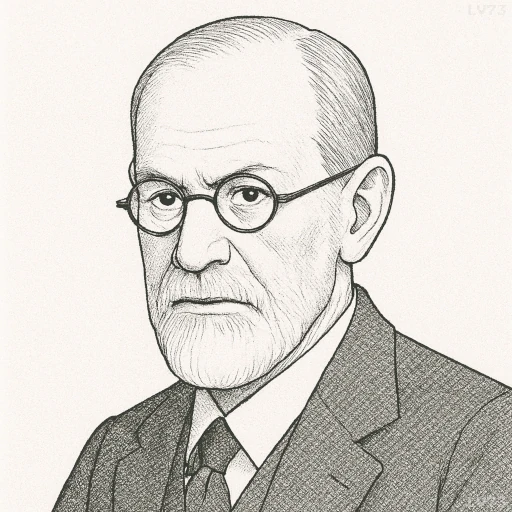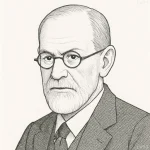“He that has eyes to see and ears to hear may convince himself that no mortal can keep a secret. If his lips are silent, he chatters with his fingertips; betrayal oozes out of him at every pore.”

- May 6, 1856 – September 23, 1939
- Austrian
- Neurologist, Founder of Psychoanalysis
table of contents
Quote
“He that has eyes to see and ears to hear may convince himself that no mortal can keep a secret. If his lips are silent, he chatters with his fingertips; betrayal oozes out of him at every pore.”
Explanation
In this vivid and poetic statement, Freud underscores the inevitability of psychological disclosure, even when individuals believe they are concealing something. He suggests that the unconscious mind leaks information through involuntary behaviors, expressions, and subtle cues. Though one may consciously choose silence, the body and mannerisms betray internal truths, revealing what the person tries to hide. This concept reflects Freud’s belief that nothing stays fully hidden in the psyche.
This idea is foundational in psychoanalysis, where Freud observed that repressed thoughts, desires, and traumas often manifest through dreams, slips of the tongue (Freudian slips), nervous habits, or psychosomatic symptoms. In therapy, the analyst must learn to “see and hear” beyond the spoken word—to detect the unconscious content behind behavior. Freud likened the mind to a landscape where secrets are never truly buried, but constantly seeking expression through indirect means.
Today, this quote remains relevant in contexts ranging from psychotherapy and interrogation to body language analysis and even literature. It serves as a reminder that truth often escapes the boundaries of deliberate concealment, and that nonverbal communication can be more revealing than speech. Freud’s insight is a powerful affirmation of the idea that our inner world will find a way to surface, no matter how tightly we try to seal it.
Would you like to share your impressions or related stories about this quote in the comments section?

